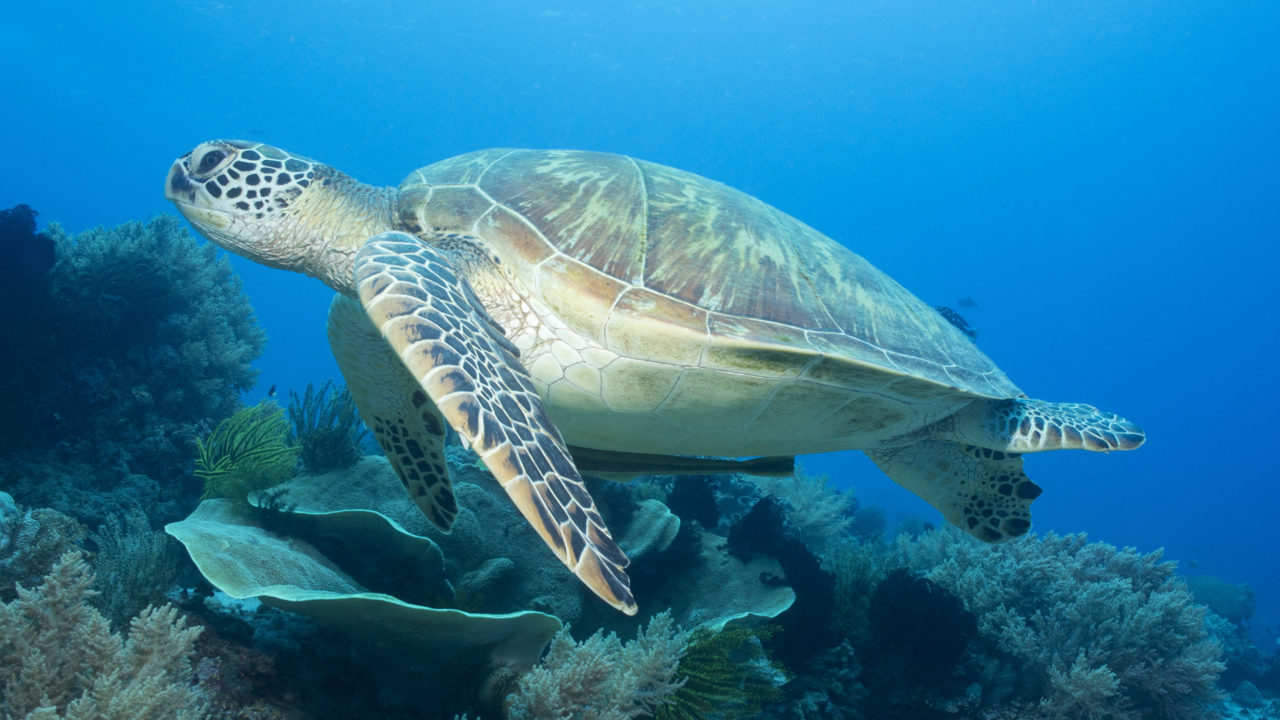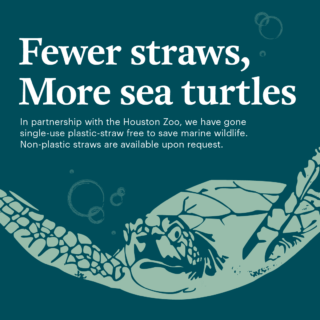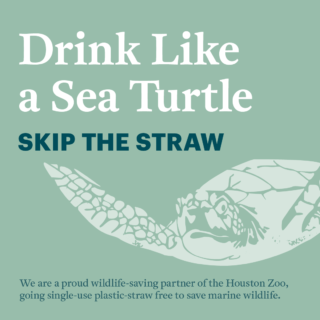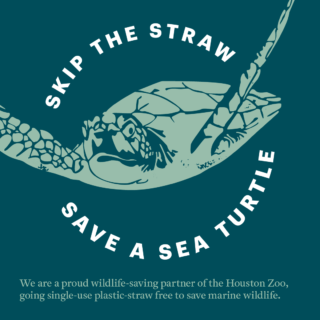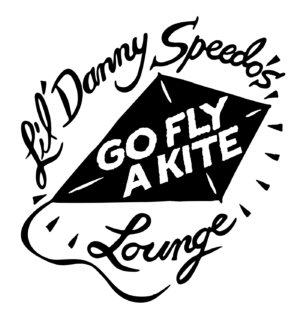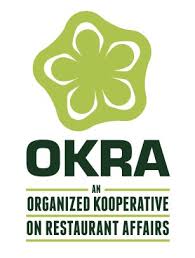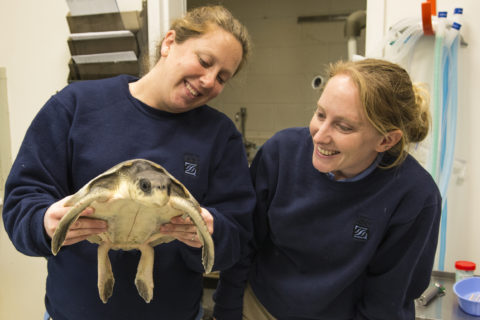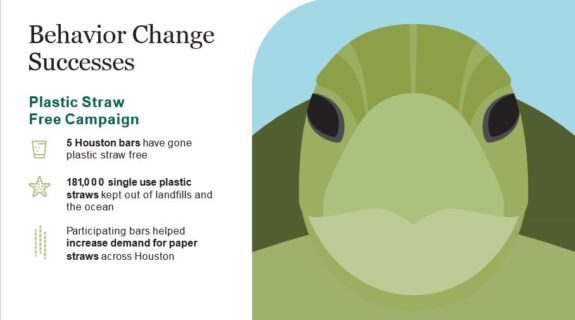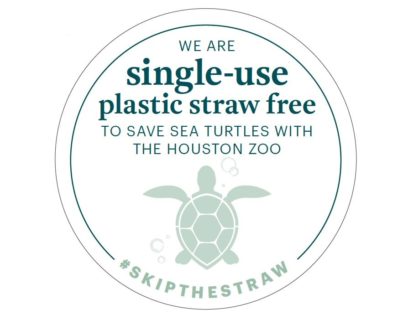About the Campaign
The Houston Zoo connects communities with animals, inspiring action to save wildlife. As part of our mission, it is critical that we take action to save wildlife, while empowering our local community to do the same.
We are partnering with local bars and restaurants to help them transition from single-use plastic straws to offering reusable or non-plastic straws (like those made of paper), only on request. Here’s why:
- Single-use plastic items like bags, bottles, and straws are typically used once, and end up in our waterways like bayous, lakes, and oceans if not contained properly. It’s estimated that in the US we use 500 million single-use plastic straws every day!
- Animals like sea turtles may mistake a plastic item for food, ingesting it and causing them to get sick.
- The Houston Zoo treats more than 60 wild sea turtles a year in our vet clinic, some of them with plastic-related injuries. We’re committed to reducing plastic use in the area to protect these animals in the wild.
We began working with several Houston bars and restaurants in 2018 to pilot this campaign. Since that time, these bars have eliminated 862,200 plastic straws from their businesses.
If you are a bar or restaurant owner/manager and want to help us save wildlife, please consider joining this campaign by completing the commitment form below!
Who's With Us?
Joining the campaign is simple. All you need to do is pledge to help save wildlife by eliminating single-use plastic straws and follow these steps:
- Swap out your plastic straws for a reusable or non-plastic alternative (we have info on vendors in our partner toolkit).
- Move your straws behind the bar/restaurant serving area so they are out of reach of guests, waitstaff, and bartenders.
- Offer your new reusable or non-plastic straws only upon request.
- Celebrate how you’re reducing plastics and saving sea turtles with your customers!
Partner Toolkit
We’ve researched reusable and non-plastic alternatives and put together additional materials to help you get started.
Social Media Images: (Click to download)
Take the Pledge and Save Sea Turtles
To be part of this success, please consider joining our campaign by completing the commitment form below.
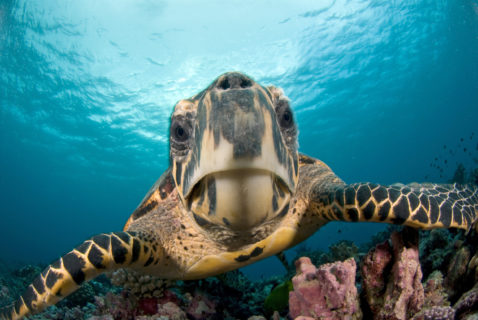 Three months after taking the pledge: You will be asked to share information on what reusable or non-plastic straw option you have chosen.
Three months after taking the pledge: You will be asked to share information on what reusable or non-plastic straw option you have chosen.- Six months after taking the pledge: You will be asked to report on how many reusable or non-plastic straws you have ordered, and how long the supply has lasted. Report on any barriers you have encountered since making the change (difficulty obtaining straws, patron responses, etc.)
- Document your progress: Take photos of your wildlife-saving practices in action so we can highlight your work on our social media channels!
